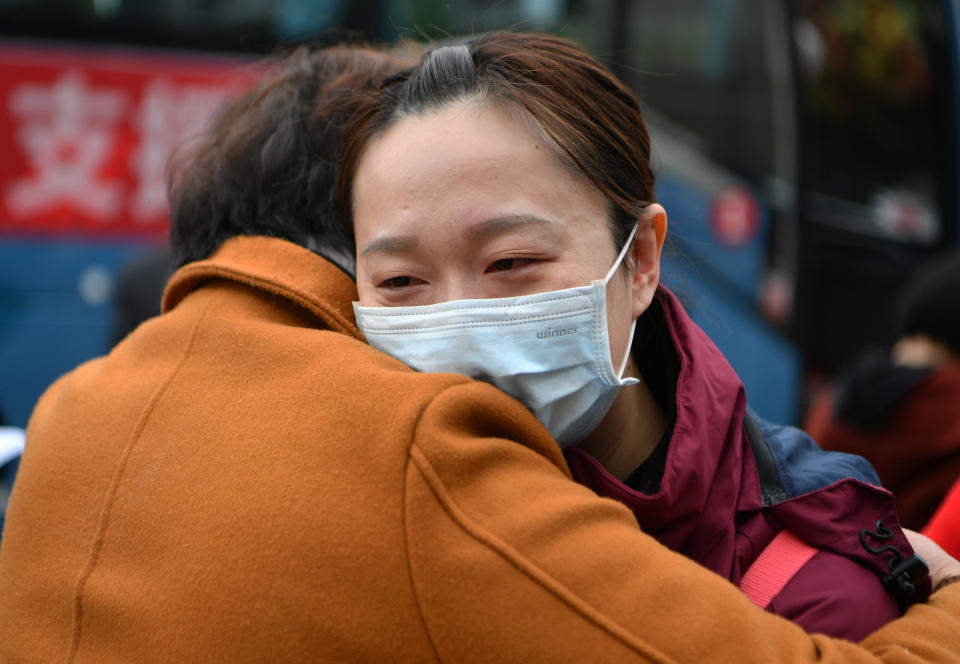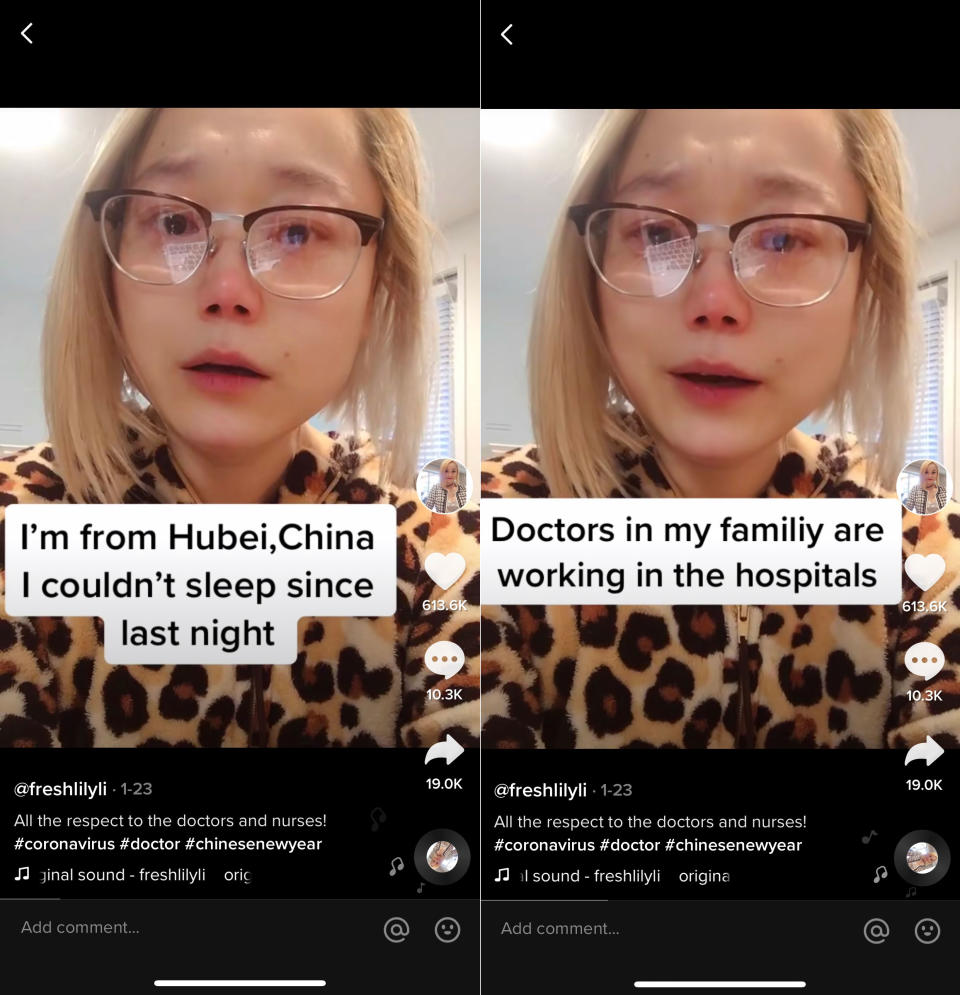Woman whose family lives in Wuhan is using 'first-hand notice' to combat coronavirus misconceptions
A Chinese woman living in California is using TikTok to educate young social media users on the coronavirus and the reality of how it is impacting people in her home country.
Lily Li is a 33-year-old woman from Hubei, China (the province where Wuhan is located), who moved stateside a decade ago to pursue an education. She has since started a nonprofit organization where she works to bridge the cultural gap between China and America, focusing primarily on young people who don’t have the resources or funds to travel abroad. But right now, she tells Yahoo Lifestyle that it has become her primary job to spread accurate information about coronavirus to that same demographic.
“It’s not a threat to our public health here [in the U.S.], at all,” Li says of the disease, which originated in Wuhan. As of now, experts at the Centers for Disease Control and Prevention (CDC) agree. “At this time in the U.S., this virus is not spreading in the community,” Nancy Messonnier, M.D., director of the CDC’s National Center for Immunization and Respiratory Diseases, said earlier this week. “For that reason, we continue to believe that the immediate health risk from the new virus to the general American public is low at this time.”

Apart from the limited understanding that most people in the U.S. have of the outbreak, Li says she has a more “practical” perspective because of her family and friends living amid the disease in China.
“Everyone is in Hubei right now,” she explains. “That’s the reason I get first-hand notice from the family, and especially doctors and nurses in my family.”
Although she’s “terribly worried” about those loved ones, Li is working to mitigate the hysteria that has since hit the U.S. Her first tactic was to visit nearby school districts to share information with students. Now, she’s using the social media platform TikTok to reach a larger, younger audience.
“We have a lot of younger people,” she says of TikTok users in the U.S. “The users are the ones that are open-minded. They want to try to use the new stuff, instead of using any existing and very successful platform.”
The first video of Li’s to go viral — with 4.6 million views and counting — is of her reporting on the severity of the disease in China, warning people to “be safe!” through tears.

“That was just my natural reaction,” she explains to Yahoo Lifestyle, after first learning of the outbreak from her family. “That’s also the moment I understand, wow ... whatever is online doesn’t matter. It’s the offline, human connections, the real emotions.”
The best way to foster those connections with such a large audience, she realized, is not through the standard social media channels.
“This is very different from YouTube or Instagram where you have to look well, you have to present yourself well,” Li explains. “I never need to worry about how I look anymore. I can really just authentically talk and express whatever message I’d like to spread out there, and you’ll have an audience.”
Since that first viral video, posted Jan. 23, Li has continued to publish updates on the coronavirus. And instead of using scare tactics to attract her growing audience, the educator thoughtfully intertwines information from her family with that being supplied by the CDC to put the global problem into perspective.
“It’s not happening to you, but it’s the perfect timing for you to understand, to get the knowledge about it. It’s the perfect timing for everyone who is not in that to get the cautions, to get the awareness, to get the knowledge of what is that, how to prevent that,” Li explains of the U.S.’s current responsibility in the outbreak. “This is not gonna be short-term ... We don’t need to jump to material or financial help. We’re a younger generation, let’s be practical.”
Read more from Yahoo Lifestyle:
Follow us on Instagram, Facebook and Twitter for nonstop inspiration delivered fresh to your feed, every day.


